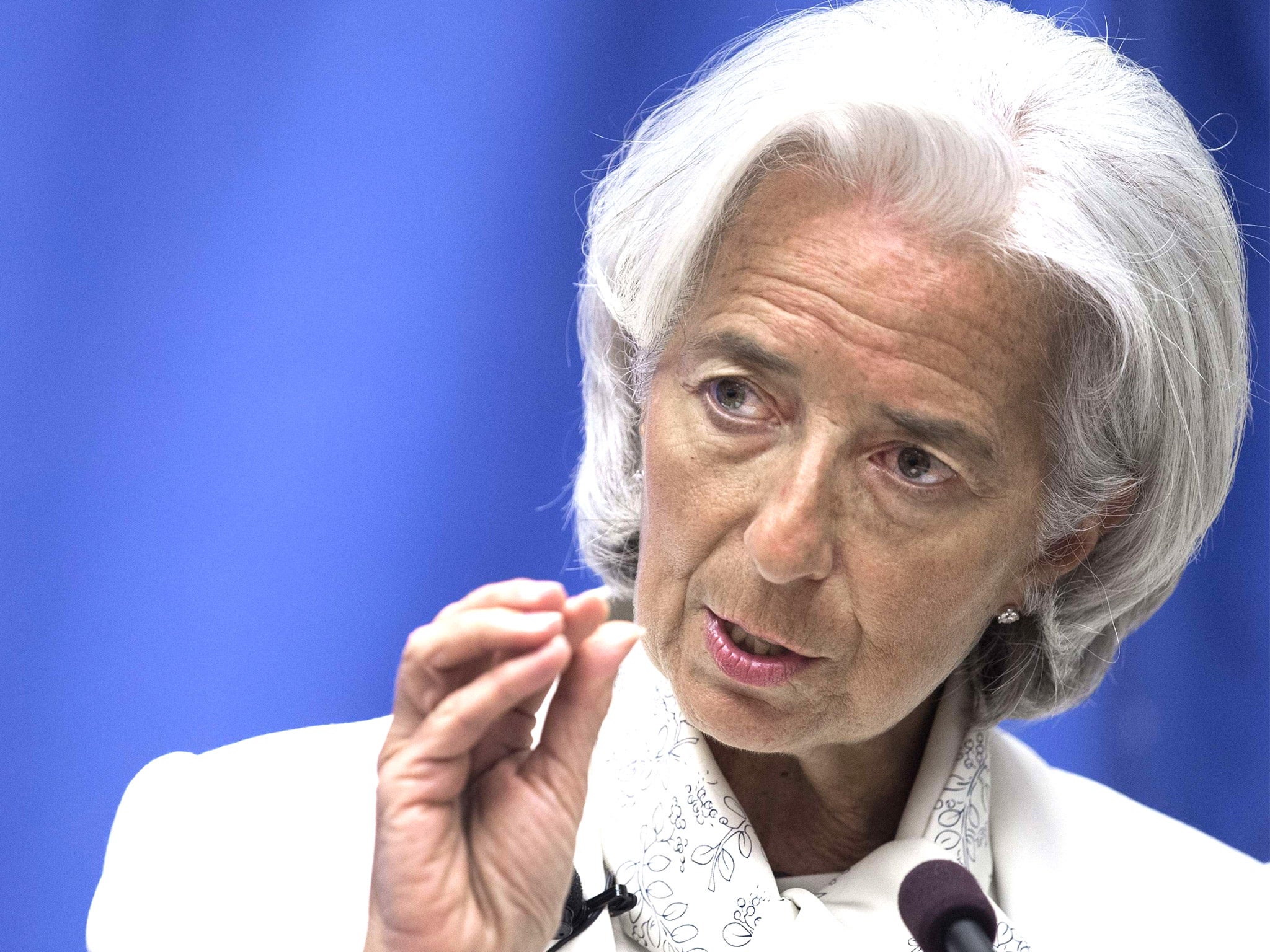IMF leaders admit they got sums wrong over Greece's rescue

Your support helps us to tell the story
From reproductive rights to climate change to Big Tech, The Independent is on the ground when the story is developing. Whether it's investigating the financials of Elon Musk's pro-Trump PAC or producing our latest documentary, 'The A Word', which shines a light on the American women fighting for reproductive rights, we know how important it is to parse out the facts from the messaging.
At such a critical moment in US history, we need reporters on the ground. Your donation allows us to keep sending journalists to speak to both sides of the story.
The Independent is trusted by Americans across the entire political spectrum. And unlike many other quality news outlets, we choose not to lock Americans out of our reporting and analysis with paywalls. We believe quality journalism should be available to everyone, paid for by those who can afford it.
Your support makes all the difference.The International Monetary Fund is reported to be prepared to admit that it got it sums wrong over the damage that its austerity programme would do to the Greek economy and the true scale of the nation's debt.
In a report, which has been passed to the Wall Street Journal, the IMF admits that it made crucial mistakes over Greece.
In particular the IMF said that it had been wrong of senior figures at the organisation, including managing director Christine Lagarde to insist from the early part of the crisis, which began in 2010, that the level of Greek debt was “sustainable” and likely to be repaid in full in a timely fashion.
The document is said to describe the uncertainties around the Greek rescue as “so significant that staff was unable to vouch that public debt was sustainable with a high probability.”
Since this time lenders to Greece have been forced to take a series of 'haircuts' on their debts and a number of bailouts have been organised by the IMF and EU.
The IMF adds that it was too optimistic about the Greek government's prospects for a return to bond markets and the country's political ability to implement the conditions of outside-imposed rescue programs.
In fact, the memo, which is believed to form the basis of report to be released on Thursday at IMF HQ in Washington, states that the IMF may have bent its own rules to make Greece's burgeoning debt seem sustainable and that, in retrospect, the country failed on the IMF criteria to qualify for assistance.
However, the report also stressed that the actions of the IMF bought time to help the EU limit the damage for the rest of the 17-nation euro area of the Greek crisis.
It described the rescue as a “holding operation” that “gave the euro area time to build a firewall to protect other vulnerable members.”
However, The European Commission is not spared of blame in the IMF report. According to the Wall Street Journal the report says the commission “tended to draw up policy positions by consensus, had enjoyed limited success with implementing [fiscal conditions]…and had no experience with crisis management.”
It adds that the commission focused more on “compliance with EU norms than on growth impact” and “wasn't able to contribute much to identifying growth enhancing structural reforms.”
The Greek Finance Ministry and the IMF declined to comment on the report.
But earlier this year Greek Finance Minister Yannis Stournaras did challenge the IMF to explain its economic forecast for the effects of Greek austerity measures.
The report is the most significant in a series of IMF analyses over the past few months that attempt to assess the institution's involvement in the euro-zone financial crisis.
The IMF joined with the European Central Bank and the Commission and the European Central Bank early in the crisis in 2010 to manage Greece's first bailout of €110 billion. The 'troika' as it is called then oversaw a second bailout in 2012, against a backdrop of economic depression and political discord in Greece.
In talks with visiting troika officials in Athens next week, Greece is likely to ask for permission to cut VAT and sales taxes, arguing that an increase in restaurant taxes, for example, has generated less revenue not more.
The emergence of the IMF report will be a further blow to confidence and European stockmarkets which have sunk to their lowest level in six weeks. Although the economic news from the UK was better on Wednesday a host of disappointing numbers from the Eurozone countries sent the FTSE 100 index of leading shares down 2.12 per cent to 6419.31.
Join our commenting forum
Join thought-provoking conversations, follow other Independent readers and see their replies
Comments